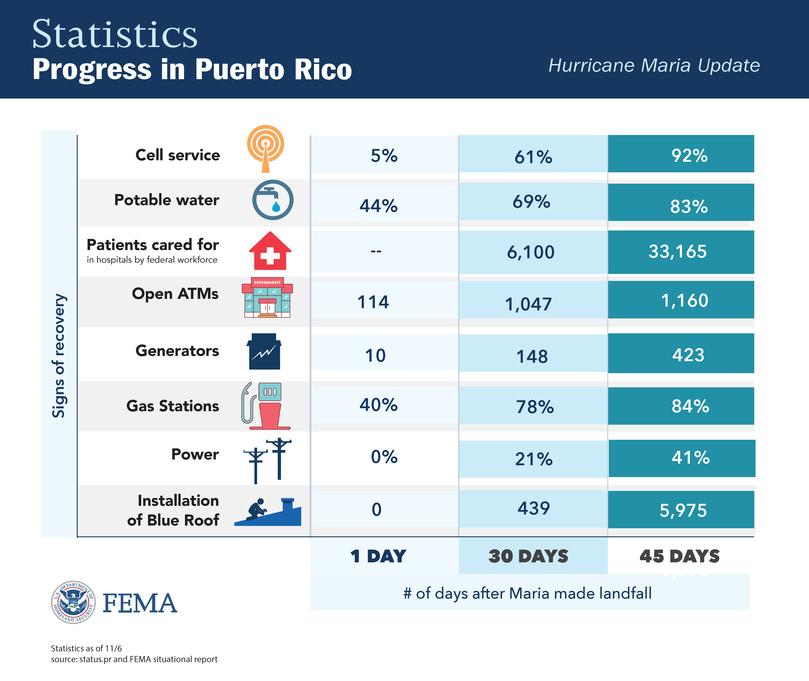Investing in Shared Citizenship

Every day we wake up with headlines that describe the immense difficulties we face as a society. We hear about issues with infrastructure, health care, societal expectations, technological advancements, and more. It’s not possible to address these challenges linearly. The ecosystem in which we live lacks sufficient controls to isolate the complexity of each issue. Gaining the perspective and understanding necessary to create real solutions requires a holistic, integrated approach that takes into account individual interests, social challenges, and active investment in a resilient future.
This imperative to take a broad view of issues, interests, and implications is at the heart of the concept of Shared Citizenship. Toffler Associates defines the commitment as:
“The responsibilities of public and private institutions and their leaders to engage and collaborate on a broader, increasingly global, and more diverse scale to solve the world’s most difficult and complex problems.”
Profitability and patriotism are not mutually exclusive. They are, however, mutually beneficial and reinforcing. With a Shared Citizenship model, organizations can solve complex challenges and benefit society simultaneously. It’s a way to protect wealth, preserve the mandate to grow and generate more revenue, and engender society’s trust. Leaders of these organizations gain a foot forward for their business, and their innovations can have an exponentially more positive impact on our national health and security. The net positive result is powerful, lasting value for customers, workforce, shareholders, and the nation as a whole.
The Challenges
Toffler Associates believes the Shared Citizenship Model has boundless potential as a solution for industry and national concerns. To that end, our firm has invested in addressing unique areas we believe have an immediate impact as well as lasting future value. We’re currently working on two areas that require strategic change – supporting veterans and creating a resilient infrastructure.
Helping Veterans Live with Sufficiency
The nation has recognized the challenges our veterans and their spouses endure during and after their service. We know the importance of understanding the Social Contract between the nation and our veterans. They face significant issues as they transition back to their communities, including:
- Key support to the veteran community through philanthropic donations is expected to decline[1] as challenges of and complexities of veteran needs rises. [2]
- The nature of warfare has evolved from conventional, force-on-force kinetic to a “hybrid” blend of conventional and non-conventional tactics with rarely understood long-term physical and mental health implications.
- The impact of cyber warfare grows commensurate with the rising number of people exposed to its threats.
- The growing use of improvised explosive devices (IEDs) and the expanded use of drones have increased the scattered nature of warfare and exposed stateside military forces to the stress of combat situations without deploying to a combat area.
- The notion of peace is becoming a fleeting idea for our military and the adjacent industries resulting in an era of “forever conflict”.
- The population of wounded veterans has increased due to improvements in personal protective equipment, combat evacuation techniques, and advancements in military and trauma medicine.
- The economic stability of military families is tenuous because they are far more likely than other American families to struggle on a single income. According to a 2016 survey by Blue Star Families, 43% of military spouses are unemployed, compared with 25.5% of civilian spouses, with 38% of military spouses underemployed relative to their level of education, compared with 6% of civilian spouses.[3]
Existential Threats to Our Infrastructure
Infrastructure underpins our economy and way of life. It is the backbone of national security and critical to the prosperity and resilience of our communities. Despite this criticality, it is challenged by countless external factors such as deepening interconnection, the growing intensity of natural hazards, and the advanced sophistication of threat actors. Further compromising its resilience and security is the seemingly blurred roles and responsibilities of the public and private sectors. For example, the government promulgates reliability and resilience policy and regulation and leads disaster response. The private sector, however, owns and operates most of the assets that comprise critical infrastructure, and are thus tasked with managing the risk and consequences posed by the increasingly dynamic threat environment.
Hurricane Maria’s devastation in Puerto Rico offers some of the starkest examples of the cascading nature of a high impact disruption to infrastructure, and the existential threat it poses. At the time of this writing, two plus months after the storm, power generation hovers unreliably around 50% capacity, following a devastating failure in early November that darkened San Juan and dropped it to 20% capacity. The massive damage to Puerto Rico’s water systems and the shortage of drinking water portends a health crisis. Continuing communications disruption and government dysfunction have made calculating an official death toll impossible. The future of this U.S. territory is questionable, with reports that 200,000 Puerto Ricans already have arrived in Florida.[4]
A major reason why the damage has been so lasting is that government and industry leaders neglected to account adequately for the second, third and fourth order effects of a major, long-term infrastructure disruption. Cascading consequences have had a significant impact on the economic well-being of the island as well as on the organizations working to deliver relief to ravaged areas. The Federal Emergency Management Agency cannot even quantify the full extent of the consequences. Noticeably absent from its official Progress in Puerto Rico chart, last updated 11/6/2017, are steady state, normal conditions.

If we extrapolate the impact of Hurricane Maria on Puerto Rico to a large-scale incident (natural or malicious), it’s easy to see that the tenuous seams of infrastructure are sure to create widespread, lasting economic disruption, which is a harbinger of communal collapse. The underlying theme of unpreparedness and slow recovery reflects a lack of understanding about how interdependent our various lifeline infrastructure is, and how an existential threat will cascade across them.
To respond to the accelerating and growing scenarios of threats and consequences, we need better coordination and shared understanding of interdependencies. Confronting security challenges associated with intersections (known and unexpected) is vital. Now is the time for visionary, translational leadership to make sense of a highly networked, interconnected world.
The Obstacle
Most executives we talk with about these challenges acknowledge it is time to stop admiring the problem, and act. But it’s rare that admiration turns into action. We see five reasons why – all rooted in the need for a Shared Citizenship model.
Complexity: Major issues demand that organizations, particularly private sector organizations, collaborate across sectors for purposes other than maximizing their bottom line. But without a set of rules, a shared lexicon, or even a common understanding of the impact of a problem, these diverse organizations lack a framework for collaboration.
Trust: In a resource scare world, businesses compete for customers, clicks, and likes. Solving complex problems together may mean working with your toughest competitor, or having to take the helm of a collaborative entity unexpectedly.
Priority: Shared Citizenship demands that organizations prioritize vague, future-oriented outcomes over quantifiable profit and shareholder successes.
Center of Gravity: Some issues cannot be solved from inside the Beltway, and require a collaborative model of invested, likeminded stakeholders with a national perspective.
Rational Leadership: Leaders often approach problems in a logical manner, bounded manner. Our modern complex, interconnected environments necessitate a new look and approach to the traditional nature of leadership.
The Opportunity
Taking into account the potential of and obstacles to Shared Citizenship, Toffler Associates is partnering with public and private sector organizations to deliver a new model. With it, we will create social impact along with mutual benefit and return on investment for entities engaged in finding solutions to the veteran issues and natural disaster recovery.
Fostering Veteran Potential
To help solve the challenges facing our veterans, Toffler Associates has been working to unite industry, non-profit, research, and government stakeholders. With this collaborative, we are creating actionable insights and innovations that will provide a return on investment for industry partners, and generate value for veterans, including:
- Unlocking resources, sharing data and conducting joint research to yield actionable policies and strategies.
- Aligning efforts among the most influential organizations whose collective data, relationships, and resources together shape a network for generating and diffusing ideas, sharing services, and scaling capabilities.
- Operating in recognition of mutual accountability and fostering a desire for improved veteran’s outcomes and potential in their communities.
- Supporting actionable programs, innovations, and policies that sustain the vitality of these veteran support structures.
Creating Resilient Infrastructure
Toffler Associates is partnering with infrastructure owners and operators to support the analysis necessary for a clear understanding of the risks of infrastructure interdependencies. We are helping to produce a consensus for a private sector-driven strategy that works toward robust national security, economic prosperity, and resilient American communities by:
- Building an agile response framework that accounts for the infrastructure with the greatest societal interdependence as well as underlying assumptions about which facets are most essential.
- Establishing a shared prioritization framework that ensures restoration decisions are made collectively and are considerate of national security essential functions.
- Leveraging cross-sector stakeholders and data to eliminate stovepiped information sharing.
- Accounting for the complex risk environment by addressing critical policy and regulatory frameworks, and incentivizing asset owners to disclose vulnerabilities for the good of the collective.
- Enabling contingency planning for existential threats at national and local levels.
- Creating a training alliance capable of speeding the recruitment of qualified personnel to build a cadre of technically-proficient response personnel.
As the global infrastructure shifts, blurs, and even expands from terrestrial to cyber to orbital, it’s critical for public and private entities to understand and embrace their role in the greater environment. Toffler Associates’ Shared Citizenship model is a proven, repeatable approach to addressing challenges, strengthening communities, and delivering reliable returns for stakeholders. Particularly as your organization is in planning phases for 2018 and beyond, contact us to learn how the approach can position you to deliver value to your customers and the communities in which they live.
Click each name to contact Dave Baber or Caitlin Durkovich.
A recognized expert in critical infrastructure security and resilience, including cybersecurity, Caitlin helps clients navigate the complex operational challenges posed by an increasingly interconnected and interdependent global economy. As a leader in the Department of Homeland Security under the Obama administration, she led the development of public-private partnerships to influence policy and best practices related to managing security and the operational risks of a continually evolving threat environment. Caitlin holds a B.A. in public policy studies from the Terry Sanford Institute of Public Policy at Duke University and a certificate in business strategy from The Aspen Institute.

Dave Baber is trusted by senior leaders for his approach to leading organizations through transformational change. He brings expertise in strategic foresight,
{{cta(‘c254ce44-075c-42d8-8fb5-4887c026f5c7′,’justifycenter’)}}
[1] http://www.military.com/veteran-jobs/career-advice/military-transition/nonprofit-organization-for-veterans.html
[2] https://usatoday30.usatoday.com/news/health/story/2012-05-28/veteran-disability/55250092/1
[3] https://www.stripes.com/news/the-sacrifice-at-home-military-spouses-bear-economic-burden-in-service-to-their-country-1.495192
[4] Florida Division of Emergency Management


 About the Authors
About the Authors